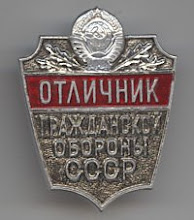Recently on Physical Insights I expressed the opinion that Helen Caldicott is just as much a liability to arms control as she is to the movement against civilian nuclear power. As my readers know, I'm a vociferous advocate for the use of nuclear energy for peaceful purposes. At the same time, I'm in favor of doing everything possible to reduce the threat of nuclear war. As much fun as it may be to poke fun in the writings of people like Caldicott, I feel like I need to be more positive and introduce figures whose efforts on behalf of disarmament are worthy of praise and acclaim.
In general, I believe that arms control has suffered from the fact that many of its proponents have conceived of it as a mass protest movement, rather than as an exercise in intellectual debate or policymaking. Although some of the greatest intellects of the 20th century wrote learned treatises against nuclear war- Bertrand Russell, for instance- it seems to me that too little attention has been paid in the disarmament field to the matter of sitting down and doing the requisite research. Another problem now is that many of the people who did this work in the past have died or retired, leaving too many puppet-wielding marchers, and not enough scholars.
Another problem was that the disarmament community lacked competent Soviet specialists. (This was not limited to disarmament: knowledgeable Sovietologists were always quite rare, so the government was only slightly less deprived.) Before Gorbachev western knowledge of the Soviet nuclear complex was extremely limited, and rumor and hearsay substituted for fact.
In my opinion, the disarmament debate needs the following qualities:
1. The highest levels of intellectual rigor, research, and decorum;
2. Thorough knowledge of the societies, cultures, and governments possessing nuclear weapons or contemplating their acquisition;
3. A Realist policy outlook (at least in the near-term) that eschews wishful thinking in favor of real, foreseeable measures that are achievable in the current geopolitical environment.
I believe that Pavel Podvig is the best current example of an arms control expert who embodies these three qualities. Firstly, Podvig's research is nothing short of first-class. His edited volume on the Russian nuclear arsenal, Russian Strategic Nuclear Forces, is without a doubt the best work available on the subject. I seriously doubt that there is anyone outside of the Russian government whose knowledge of the subject is broader than Podvig's. On the second point, Podvig benefits from the fact that he is Russian, and was educated at first-class Russian educational institutions. On the third point, Podvig understands that the only way to restart disarmament in the near term is to try and repair the fraying relationships between the Russian and American governments and militaries that were forged in the 1980s and 1990s. Closer US-Russian cooperation is the key to arms control.
I don't agree with Podvig on everything. I have a very different take on the motivation behind some of the recent decisions made by the Russian government- the MIRVing of the Topol-M missile, for instance. But I utterly respect him. Furthermore, Podvig has been extremely hospitable to me and (I presume) to others who send him inquiries. He also has a wonderful blog that I heartily recommend. In my humble opinion, we need more people like Pavel Podvig.
Tuesday, December 11, 2007
Subscribe to:
Post Comments (Atom)

No comments:
Post a Comment